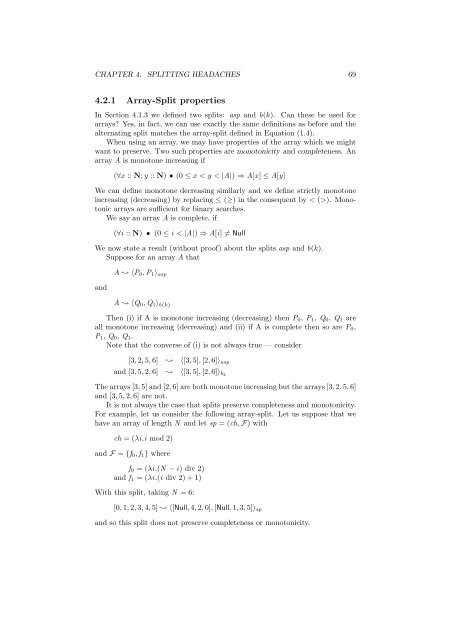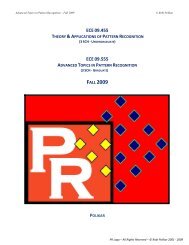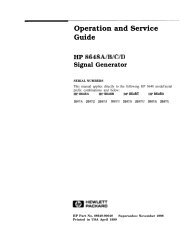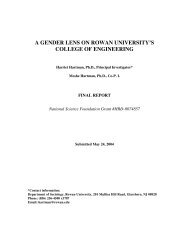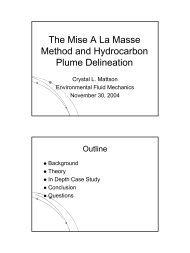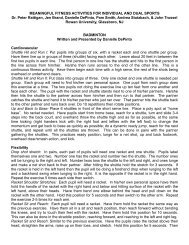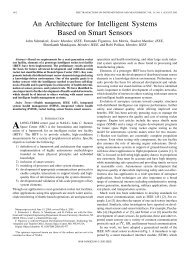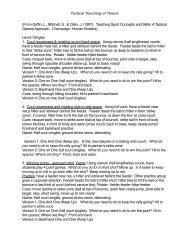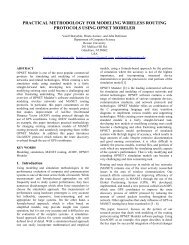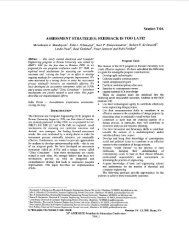Obfuscation of Abstract Data-Types - Rowan
Obfuscation of Abstract Data-Types - Rowan
Obfuscation of Abstract Data-Types - Rowan
Create successful ePaper yourself
Turn your PDF publications into a flip-book with our unique Google optimized e-Paper software.
CHAPTER 4. SPLITTING HEADACHES 69<br />
4.2.1 Array-Split properties<br />
In Section 4.1.3 we defined two splits: asp and b(k). Can these be used for<br />
arrays? Yes, in fact, we can use exactly the same definitions as before and the<br />
alternating split matches the array-split defined in Equation (1.4).<br />
When using an array, we may have properties <strong>of</strong> the array which we might<br />
want to preserve. Two such properties are monotonicity and completeness. An<br />
array A is monotone increasing if<br />
(∀x :: N;y :: N) • (0 ≤ x < y < |A|) ⇒ A[x] ≤ A[y]<br />
We can define monotone decreasing similarly and we define strictly monotone<br />
increasing (decreasing) by replacing ≤ (≥) in the consequent by < (>). Monotonic<br />
arrays are sufficient for binary searches.<br />
We say an array A is complete, if<br />
(∀i :: N) • (0 ≤ i < |A|) ⇒ A[i] ≠ Null<br />
We now state a result (without pro<strong>of</strong>) about the splits asp and b(k).<br />
Suppose for an array A that<br />
and<br />
A ❀ 〈P 0 ,P 1 〉 asp<br />
A ❀ 〈Q 0 ,Q 1 〉 b(k)<br />
Then (i) if A is monotone increasing (decreasing) then P 0 , P 1 , Q 0 , Q 1 are<br />
all monotone increasing (decreasing) and (ii) if A is complete then so are P 0 ,<br />
P 1 , Q 0 , Q 1 .<br />
Note that the converse <strong>of</strong> (i) is not always true — consider<br />
[3, 2, 5, 6] ❀ 〈[3, 5], [2, 6]〉 asp<br />
and [3, 5, 2, 6] ❀<br />
〈[3, 5], [2, 6]〉 b2<br />
The arrays [3, 5] and [2, 6] are both monotone increasing but the arrays [3, 2, 5, 6]<br />
and [3, 5, 2, 6] are not.<br />
It is not always the case that splits preserve completeness and monotonicity.<br />
For example, let us consider the following array-split. Let us suppose that we<br />
have an array <strong>of</strong> length N and let sp = (ch, F) with<br />
ch = (λi.i mod 2)<br />
and F = {f 0 ,f 1 } where<br />
f 0 = (λi.(N − i) div 2)<br />
and f 1 = (λi.(i div 2) + 1)<br />
With this split, taking N = 6:<br />
[0, 1, 2, 3, 4, 5] ❀ 〈[Null, 4, 2, 0], [Null, 1, 3, 5]〉 sp<br />
and so this split does not preserve completeness or monotonicity.


